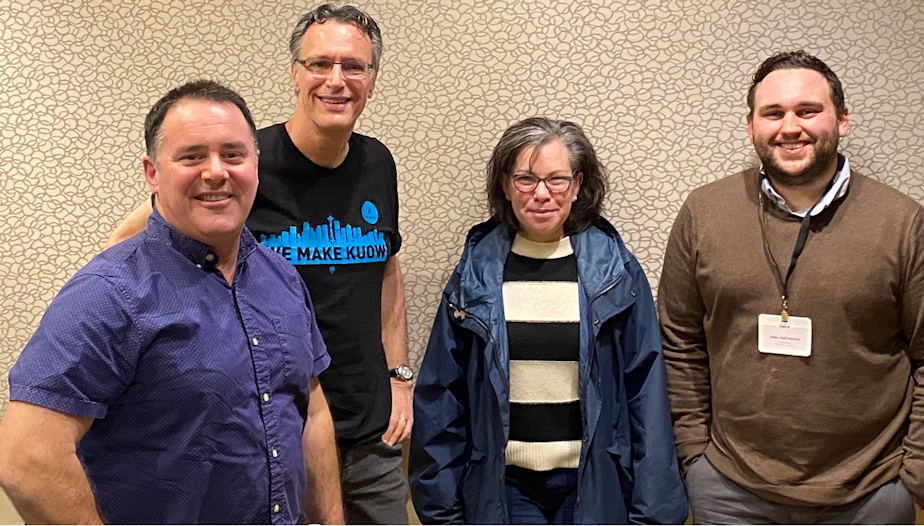Week in Review: Amazon, legislature, and housing

Bill Radke discusses the week’s news with Seattle Channel’s Brian Callanan, Seattle Times Claudia Rowe, and Puget Sound Business Journal’s Alex Halverson.
Amazon announced return to office plans, saying that most employees will be expected to work in-person at least three days a week starting May 1st. A message shared with Amazon employees said it’s “easier to learn, model, practice, and strengthen our culture when we’re in the office together most of the time and surrounded by our colleagues,” that “collaborating and inventing is easier and more effective when we’re in person,” and that “learning from one another is easier in-person.” This comes at a time when Amazon is deciding what to do with an excess of empty downtown Seattle office space. Will Amazon pay to convert office space to residential?
After a new batch of votes were released on Wednesday, Initiative 135 saw its lead increase to about 54%. If passed, the initiative would create a new public development authority that would build as mixed-income, permanently affordable housing, or “social housing.” This was the only initiative on the ballot in Seattle. Are we first in the US to try it?
The Washington Legislature is considering Senate Bill 5536 this session. The bill would make drug possession a gross misdemeanor and encourage cops to steer individuals to services. Drug possession convictions could be vacated with the completement of treatment, and opioid treatment programs would be deemed, “essential public facilities,” which could accelerate the process of opening facilities. What are the pro and con arguments regarding this legislation?
Two bills in the state Legislature would add clergy to the list of mandatory reporters of abuse or neglect. But Catholic officials in Washington say they will oppose the bill if it doesn’t have an exemption for confessions. Child advocates say that this creates a loophole for clergy to not have to report abuse. Why is clergy not on Washington’s list of mandatory abuse reporters?
The Washington Legislature is also considering a bill that would eliminate legal fines, fees and restitution in juvenile court. The bill would create a Community Compensation Program to pay victims of crimes committed by juveniles, rather than charging juvenile offenders’ restitution. Supporters say that juvenile court fines and fees disproportionately impact low-income families that can pay them back in a timely manner, which can lead to additional interest and other penalties. Is there opposition among lawmakers?
Sponsored
A case is being made to rename Hood Canal. Barbara Stark, who lives in a neighborhood overlooking Hood Canal, says that it is not a canal at all, but a fjord. Stark says that “Mt. Rainier is not a hill, the Columbia is not a creek, the Pacific is not a lake. It is time to recognize the beauty and magnificence and uniqueness of this body of water – it is not a canal.” She is hoping to get a new name, “Salish Fjord” adopted via a proposal through the state’s process for renaming geographic features. Do you think the state will care enough about what’s technically correct (fjord) versus what’s well-established (Hood Canal)?


